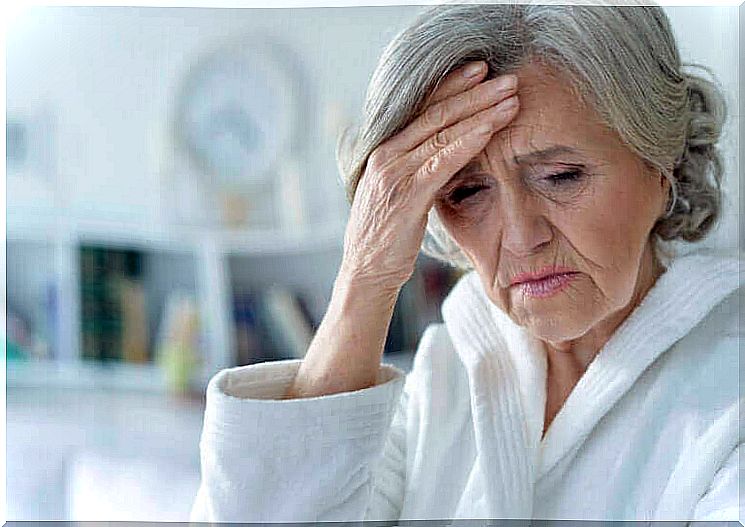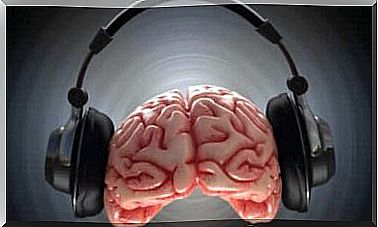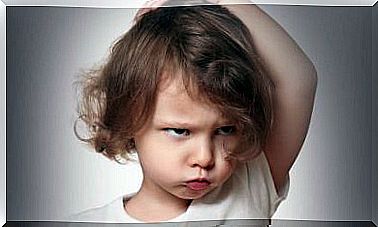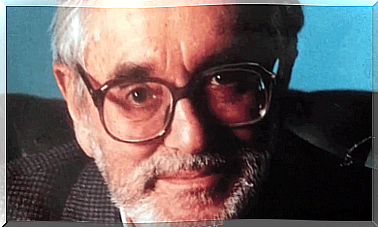Symptoms Of Psychotic Depression
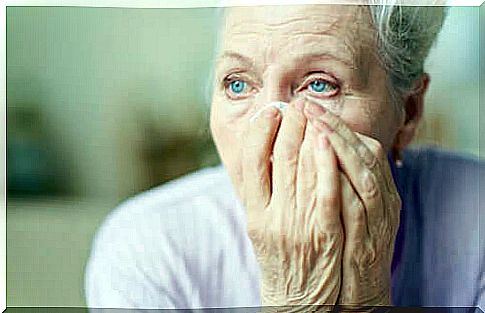
Major depression is one of the most serious clinical realities, but psychotic depression is debilitating and terrifying. It occurs more frequently than you might think, especially in geriatric patients.
Hallucinations, delusions, sadness, feelings of guilt, and even self-injurious behavior. We are facing a psychological condition that deserves more attention. We would like to stress the relevance of making early diagnoses of this type of depression for a very specific fact.
Many people who resort to suicide do so when they enter the acute phase of the disorder. This is especially the case for people who have suffered from major depression for a long time without knowing it or for those who drop out of treatment.
This severe mental disorder has a good prognosis when surgery is started early. The main thing in all cases is that the assessment and intervention begin as soon as possible. Another variable that has an important weight in the prognosis is the quality of the social support enjoyed by the person.
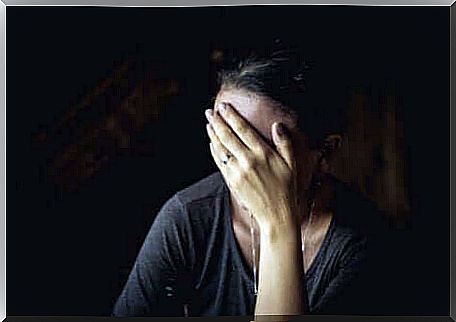
What are the symptoms of psychotic depression?
The scientific literature collects a large amount of information on schizophrenia, bipolar disorder and non-psychotic depression. However, psychotic depression has so far received little attention.
Studies, like the one conducted at the University of Cambridge, for example, highlight this. They emphasize the need to understand a little more the etiology of the current clinical reality.
This disease is known to be more common in older people and, in particular, when they have a family history of psychosis or bipolar disorder. Likewise, there is data showing that one in four people admitted to hospital with major depression experience psychotic depression.
We are therefore faced with a mental state that is more common than we think and with often problematic consequences. Let’s find out what her symptoms are based on the Diagnostic and Statistical Manual of Mental Disorders (DSM-V), in which she is described as a form of major depression.
Mood swings, one of the symptoms of psychotic depression
The person who suffers from psychotic depression has a low mood, is sad and dejected. Bad mood is therefore recurrent, as well as outbursts of anger and rage for no apparent reason.
Low self-esteem accompanied by delusions
One of the most common psychotic symptoms is a constant feeling of guilt, helplessness, and low self-esteem. These feelings can lead to extreme situations when the person feels relegated to the family and socially.
The delusions from which she suffers from time to time lead her to believe that she is not loved. This often causes great confusion among those close to the person who is suffering from psychotic depression.
Changes in sleep patterns
A common occurrence among the symptoms of psychotic depression is sleeping during the day and staying awake at night. Changes in resting habits are a constant.
Hallucinations that patients usually do not talk about
Hallucinations are a common (and problematic at the same time) fact of this psychological condition. A symptom that patients do not always talk about. These hallucinations are usually auditory, that is, they hear voices that tell them, for example, that such a person does not like them or that they are going to die.
People with this type of depression are aware that this is not normal. Therefore, in most cases, they choose to be silent and remain silent. This makes the diagnosis difficult.
Lack of hygiene
Another symptom of psychotic depression is a complete disregard for hygiene and toilet habits. The people concerned do not wash, do not change their clothes. They also neglect cleaning at home.
The breakdown of links and communication
In the most serious cases, the family can see how the person with this type of depression gradually disconnects. She stops interacting, caring about others, devoting time to her hobbies. His daily life is transformed. It is also common for her to reduce her mobility.
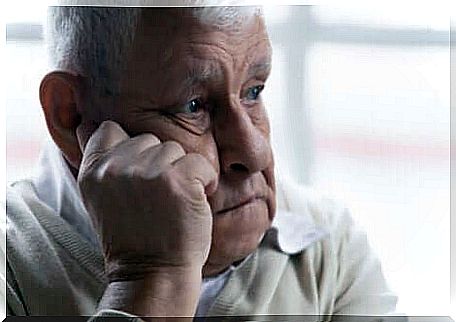
How is psychotic depression treated?
One of the reasons that psychotic depression is not easily diagnosed is that psychotic symptoms are often masked. People are aware that these delusional voices or thoughts are not normal, so they don’t say anything.
However, the suffering is so devastating that in some cases they resort to self-harm or even suicide. It is decisive that the family environment is aware of the personal reality that this loved one experiences.
An early diagnosis of major depression, for example, in many cases avoids drifting into these extreme situations. However, as we pointed out at the beginning, this clinical condition has a good prognosis.
Treatment with antidepressants and antipsychotics helps regulate mood. Likewise, cognitive behavioral therapy also works well in most cases. Finally, it is essential to put in place continuous medical and psychological surveillance.
